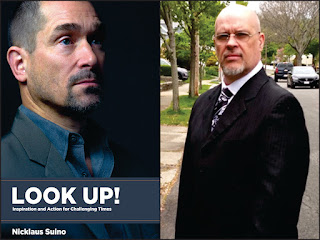The rebirth of Itten Dojo is much more than simply an evolution in the arts we practice. I’ve heard it said many times, in many different contexts, “When the student is ready the teacher will appear.” As circumstances forced us to take a hard look at what we were doing — and more importantly, why we were doing it — we realized that we had become even more strongly focused on making a positive impact on the lives of the members of the dojo than we had been already. We had entirely left behind any notion of producing students to “serve the ryu,” in favor of utilizing the ryu to serve the members. To be very clear: the heritage martial arts *must* be preserved, absolutely intact in their austere and rigorous demands, but the overarching justification for that preservation is its utility as a vehicle to help people improve their lives.
I’ll never forget the five minutes at the conclusion of the weekend that was our formal start of iaido training with Nicklaus Suino Sensei, during which he spoke of his personal mission in life and how he uses budo as one avenue in support of that mission. We were transfixed — it was that inspirational.
And now we have the following post from Salahuddin Muhammad Sensei, the technical advisor to our aikijutsu program, resonating with that same spirit. Two different teachers from totally different traditions, and yet very much on the same page with regard to the ultimate reasons to train.
We’re ready, the teachers have appeared, and we invite you to join us on a mission to improve lives.
• • • • •
Meeting the needs of our students. Are we meeting them or merely assuming that we have?
I'm finishing a short piece, part of a series, on how and why we teach our curriculum, and present it as we do.
This next piece is how we incorporate principles from Maslow’s hierarchy of needs. This is not from traditional, Japanese culture but rather serves as a valuable tool to meeting the initial needs of the student, that we respectfully submit must be met, if they are to be as productive here in the West, in dojo culture and life. We respectfully submit, that these initial concerns and attributes are not often addressed.
This is why you can see someone with decades of martial arts experience that has not developed confidence, the ability to defend themselves in truly violent surroundings, and though they’ve learned to demonstrate beautifully, there are cracks in their foundation that, if pressed, will make them easily fold. This should be interesting and I hope will be helpful for how instructors here in the West view their students, their needs, and their own ability to meet those needs. Upon completion, this piece and the other parts, in the future, will be submitted to Robert Wolfe to be included in Sword and Spirit, a truly wonderful publication. These are short pieces that, when combined, will offer something truly valuable that may assist us all — and help others as they join our dojo.
Our initial point is this: If someone comes to your door starving, cold, and afraid and you merely want to speak philosophy to them, you will never reach them until you meet their basic needs. They will merely be obsessed with those initial needs and concerns. This reality can be handled by understanding human behavior in nature.
Reading this, I hope you can understand now why I don’t have want thousands of students.
Each and every student is a journey in and of themselves, for me as a teacher. If I had thousands of students, could I really address their issues in the way that I’m describing? For the more commercially-minded folks, we are not addressing what you do or how you approach things. There’s room for everyone. I believe in achieving my financial goals through the attributes developed at the dojo, but not with the dojo itself.
This is not an attempt to sound edgy or cool. I see a higher calling and purpose for instructors and I definitely see the need to develop this type of mindset here in the West, especially in our large, urban centers. If we can influence one person and they can become a powerful leader, motivator, mover and shaker, then some of these social ills, personal dangers, and personal disappointments can be remedied, understood, then eventually changed. Thank you very much.




Comments
Post a Comment